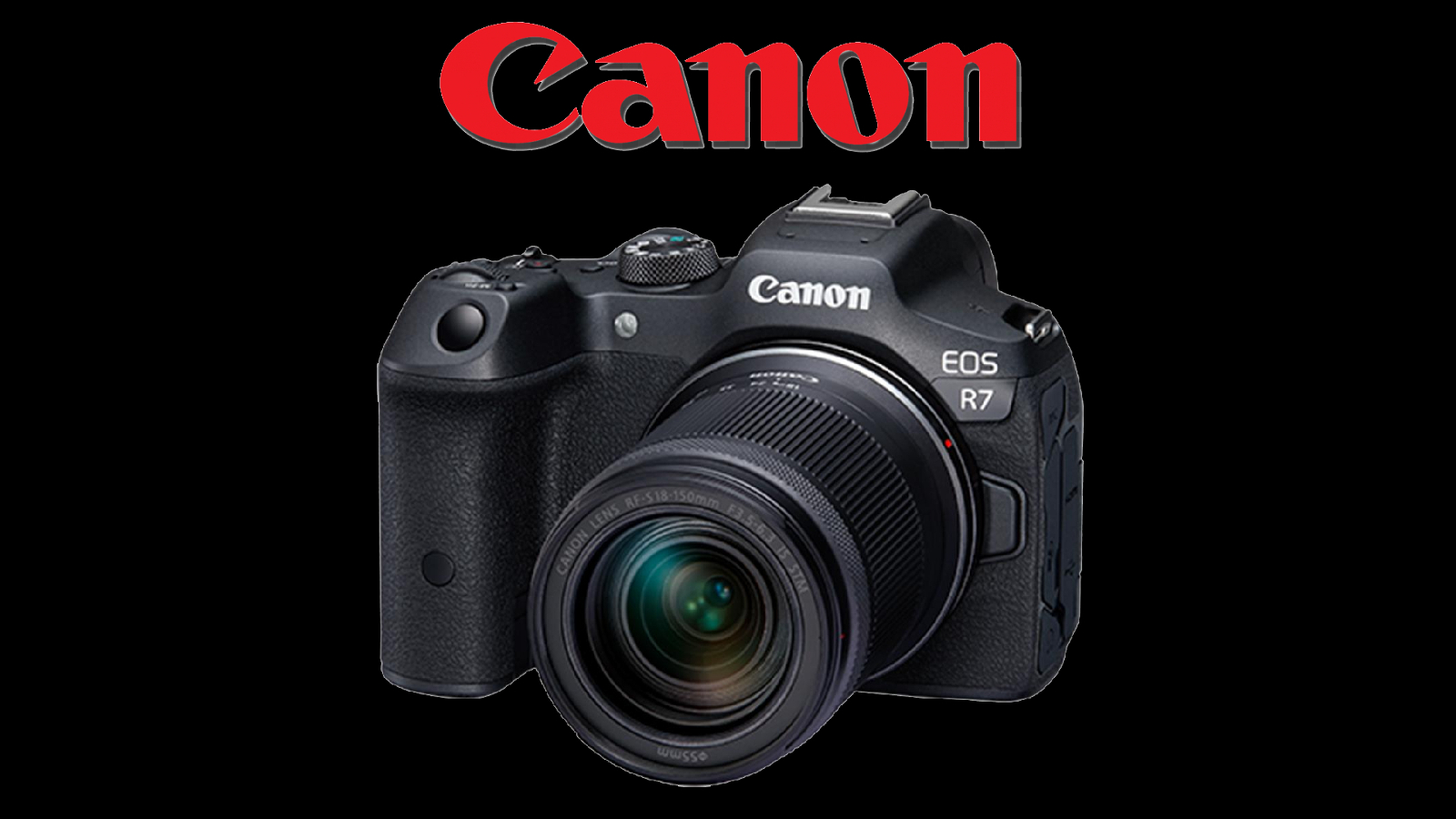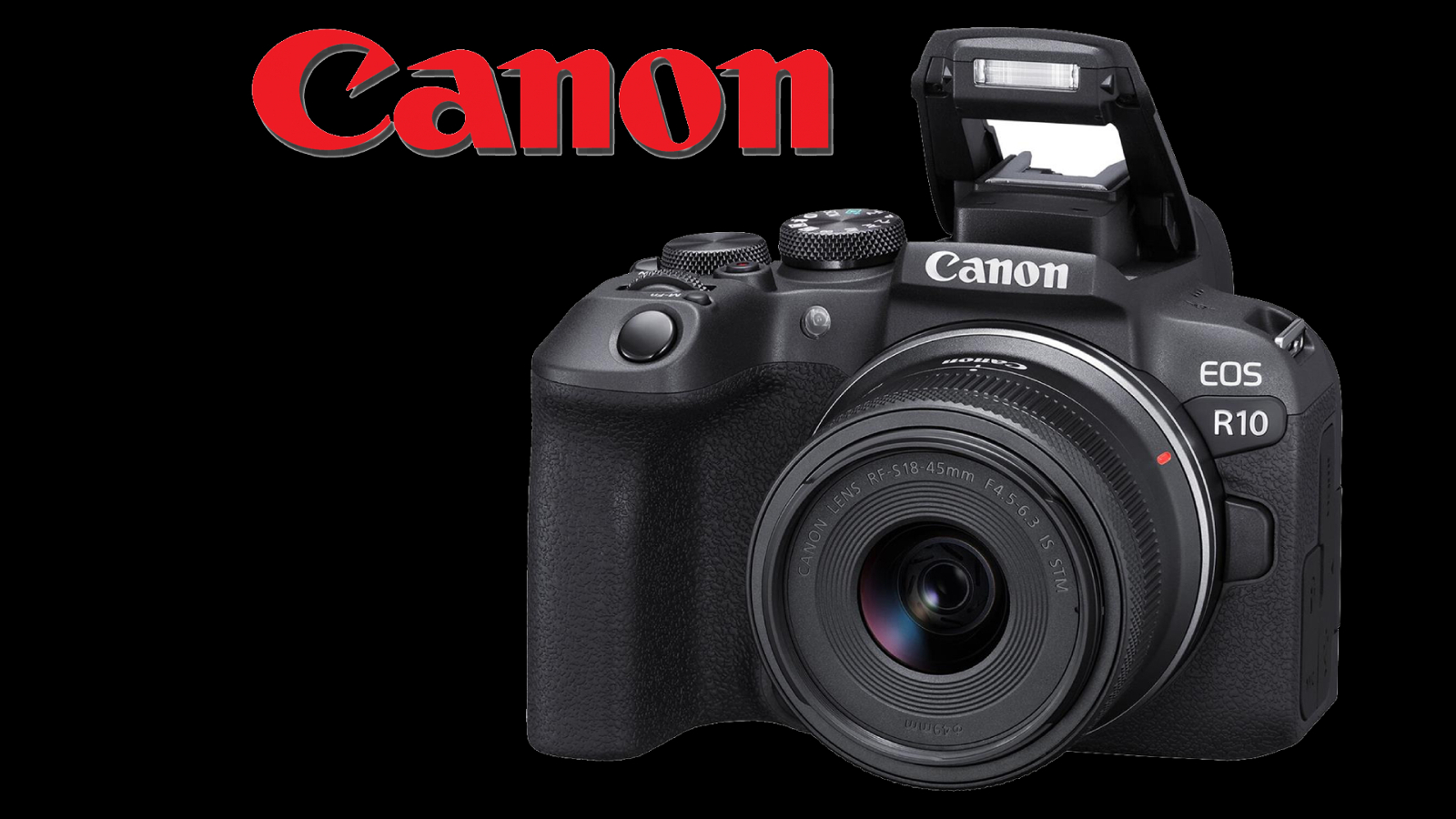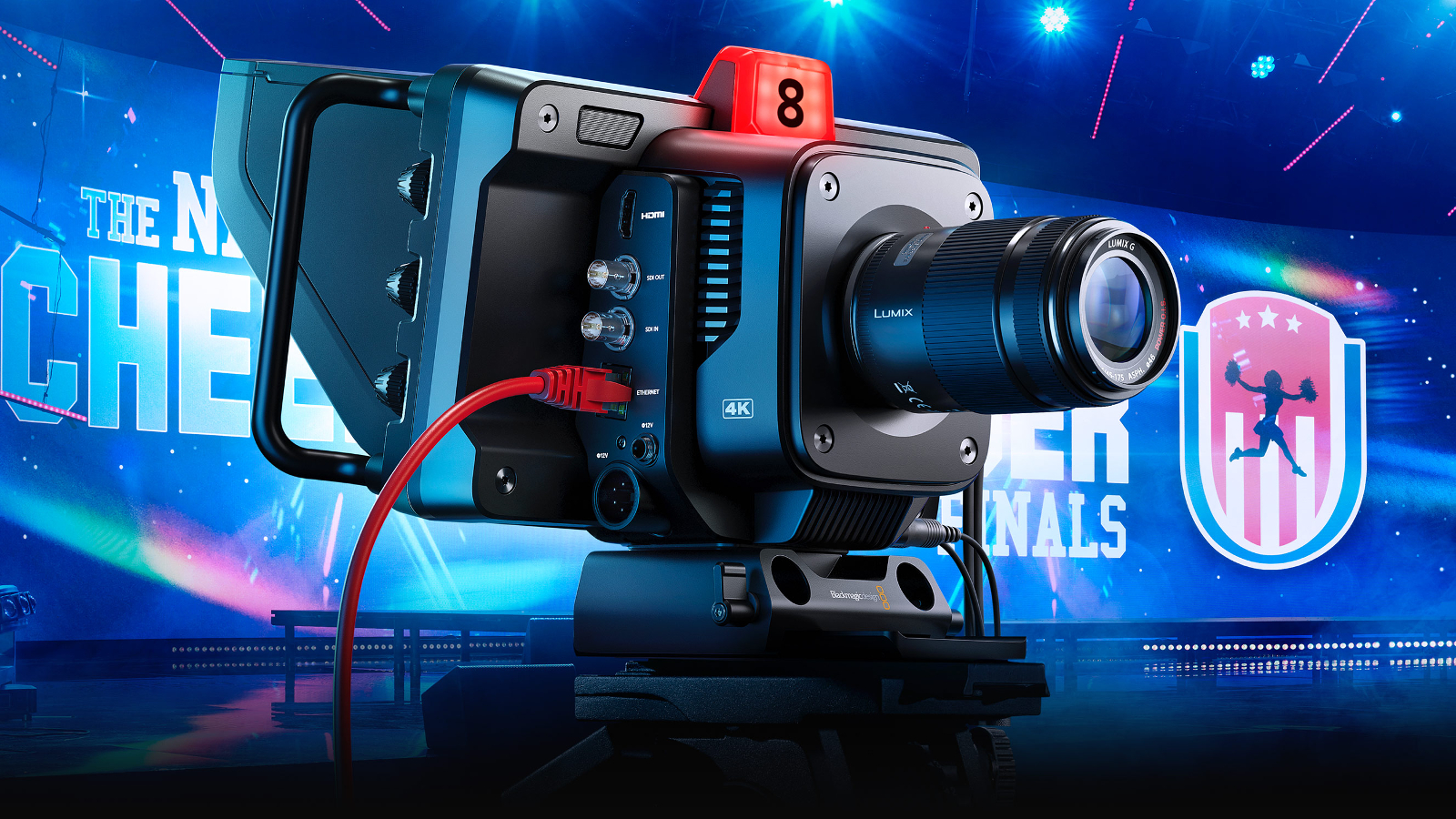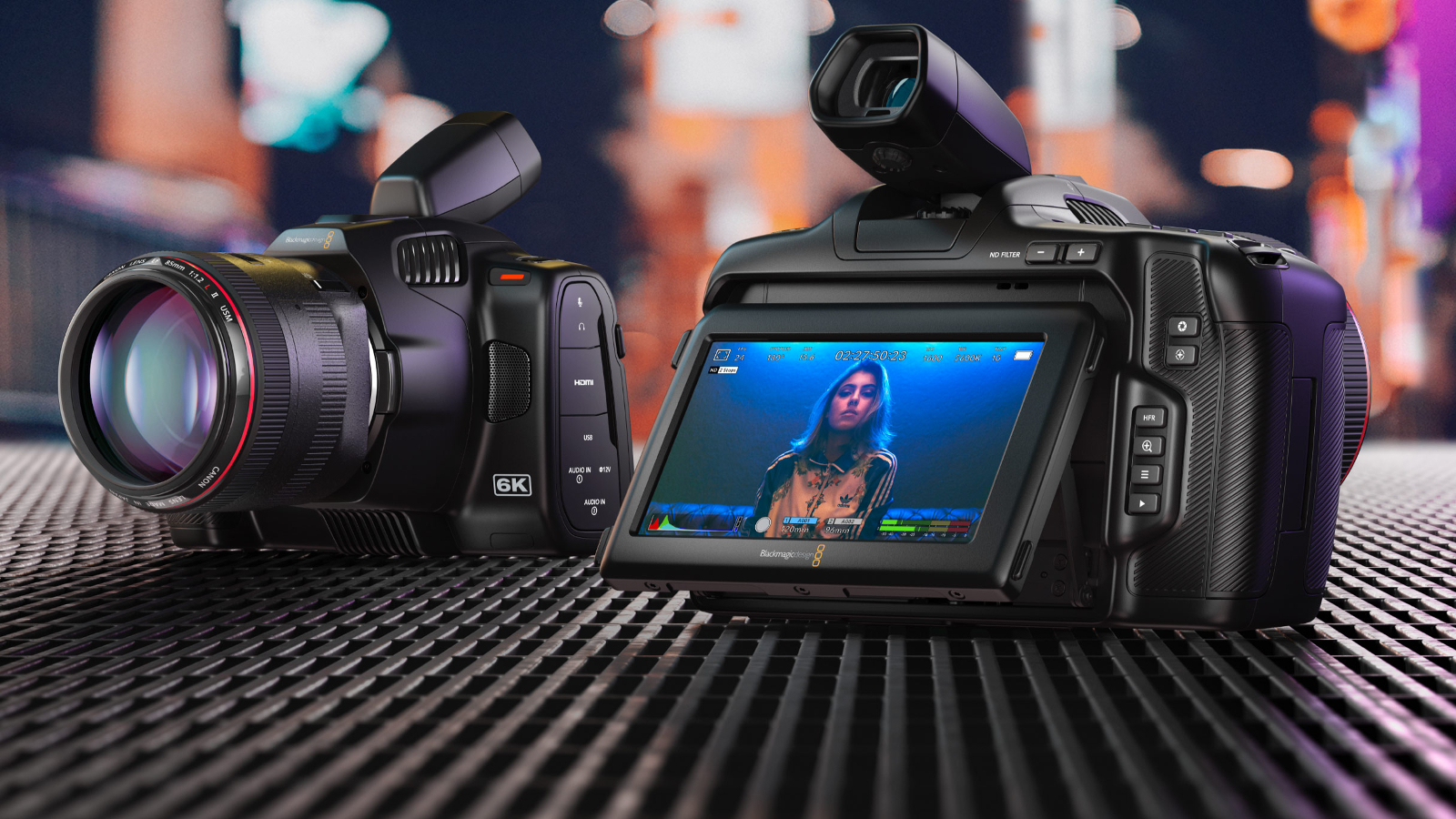Canon launches two new R series cameras — here's what to expect
Canon announces new EOS R7 and R10
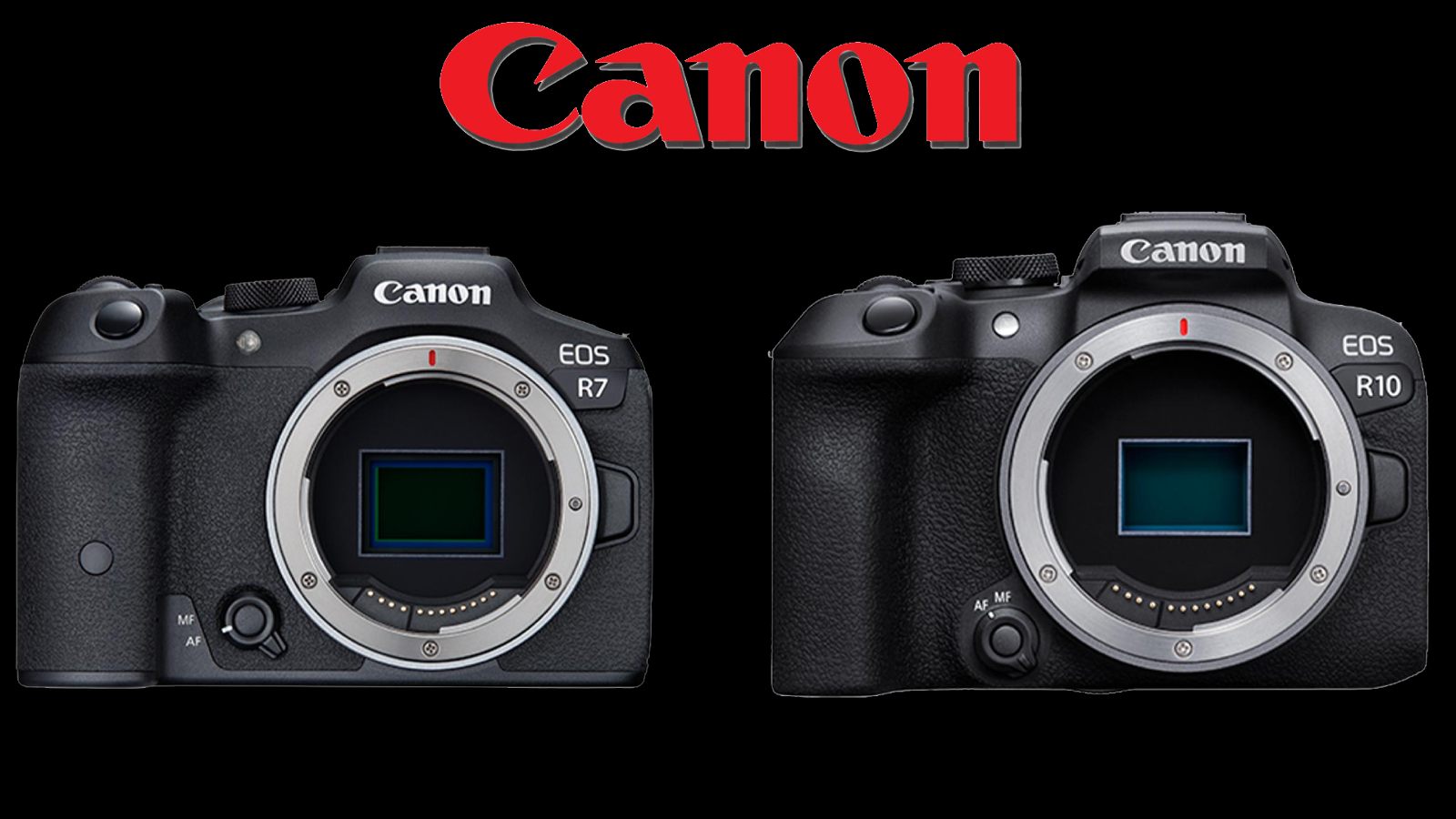
Sign up to receive The Snapshot, a free special dispatch from Laptop Mag, in your inbox.
You are now subscribed
Your newsletter sign-up was successful
Last Tuesday, Canon announced the launch of two new R series cameras, the EOS R7 and R10. The two APS-C cropped sensor cameras will share many similar features with Canon's full-frame R series cameras, such as autofocus technology and the ability to film in 4K at 60 fps, with 120 fps available in Full HD. The R7 and R10 will come with Canon's fully articulating flip-out touchscreen that grants users extra flexibility while filming or shooting photos.
We're very excited to see what these mirrorless APS-C cameras are capable of. For now, let's take a deeper look into the differences between these two new cameras from Canon. Plus, a look at what Black Magic might have up its sleeve.
Canon EOS R7
The Canon EOS R7 is a 32.5MP APS-C mirrorless camera with Canon's RF mount. It's the big brother of the EOS R10, with which it shares a launch date. The R7 is targeted at photography enthusiasts who want something between entry- and pro-level capabilities. It appears to be the replacement for the EOS 90D DSLR with its sibling, the R10, replacing the EOS M6 II.
The EOS R7 and R10 share the same autofocus system, which features zone tracking to easily track people, animals, and vehicles. With zone tracking, you can use any of the AF tracking areas and have the system focus tracking on said selected zone. The R7 can shoot continuously at up to 30 fps using its electronic shutter and 15 fps using a mechanical. Once we get our hands on a review unit, we will have more details as we put it through its pages.
The EOS R7 will cost $1,499 body-only, or $1,899 with the new 18-150mm F3.5-6.3 IS STM zoom lens. You can pre-order a Canon EOS R7 at B&H Photo now.
Canon EOS R10
The R10 is the entry-level APS-C mirrorless camera in the RF mount lineup and features a 24MP APS-C CMOS sensor, and looks a lot like its sibling, the EOS R7. It shares the same autofocus system with its sibling and is capable of filming video at 4K at 60 fps. The R10’s autofocus system is derived from the Canon EOS R3 and uses AF zone tracking technology. The R10 comes with the very popular fully articulating three-inch LCD touchscreen, which gives users great flexibility while shooting photos or filming. We will have more details once we receive our review unit and take it out for a few weeks of testing.
The EOS R10 will be available, body-only, for a price of $979. Kit options include a bundle with the compact, collapsible 18-45mm F4.5-6.3 IS STM for $1,099 or with the 18-150mm F3.5-6.3 IS STM for around $1,379. You can pre-order the Canon EOS R10 right now from B&H Photo.
Sign up to receive The Snapshot, a free special dispatch from Laptop Mag, in your inbox.
Canon rumors
Photo Rumors recently speculated about what could be coming next from Canon after this week's R7 and R10 launch. The report indicates Canon to possibly release a new full-frame RF system camera, the EOS R1 (2023), and a 100+ megapixel EOS RF camera sometime during the first half of 2023. Although 100 megapixels sounds ridiculous, we have already seen smartphones with the same, like the Samsung Galaxy S21 Ultra.
There has been some speculation that the Mark II version of the Canon EOS R and EOS RP could be in the works, but isn't that what we just got in the R7 and R10? We may see a Mark II version of the Canon EOS C70, which I believe will get a bump up to at least 6K, and some other improvements such as CFexpress slots and the ability to record to an external drive. We're looking forward to what Canon will be launching in 2023. Keep in mind that delivery delays have already been announced for the R7 and R10.
Blackmagic whispers
Many have speculated that Blackmagic will be releasing an 18K box style cinema camera sometime in 2022, which is highly possible but since it didn’t happen at NAB 2022 as many predicted, some have lost faith. This writer believes there may be two new cameras, and maybe even three, before the end of 2022.
My first prediction is we will see either a 6K or 8K Blackmagic Studio Camera with an EF mount and very similar specs to the BMPCC 6K or 6K Pro. The 6K Pro Studio camera could be very similar to the current studio cameras in every way except with a brighter LCD screen, fitting into the now-familiar box style format of the current Studio camera lineup.
The second camera I predict we may see is a Blackmagic pocket cinema camera 6K Pro Plus, which will feature a dual-pixel autofocus system with subject tracking. Blackmagic cameras currently have a rudimentary autofocus system (focus assist) that helps you dial in focus, and I’m not complaining; I find it super helpful. We may also get two USB-C ports and an improved battery.
Blackmagic could also throw us a curveball and release an 8K pocket cinema camera with autofocus and subject tracking and up to 240 fps for super serious slow-motion filming. Plus, it would be nice if it came with an RF mount. As anyone will tell you, Canon’s RF glass is excellent and having recently shot with a Canon C70 with RF lenses, I have to say the footage was stunning.
We're not sure what Blackmagic has up its sleeve, but we're excited to see what the company comes up with.

Mark has spent 20 years headlining comedy shows around the country and made appearances on ABC, MTV, Comedy Central, Howard Stern, Food Network, and Sirius XM Radio. He has written about every topic imaginable, from dating, family, politics, social issues, and tech. He wrote his first tech articles for the now-defunct Dads On Tech 10 years ago, and his passion for combining humor and tech has grown under the tutelage of the Laptop Mag team. His penchant for tearing things down and rebuilding them did not make Mark popular at home, however, when he got his hands on the legendary Commodore 64, his passion for all things tech deepened. These days, when he is not filming, editing footage, tinkering with cameras and laptops, or on stage, he can be found at his desk snacking, writing about everything tech, new jokes, or scripts he dreams of filming.
